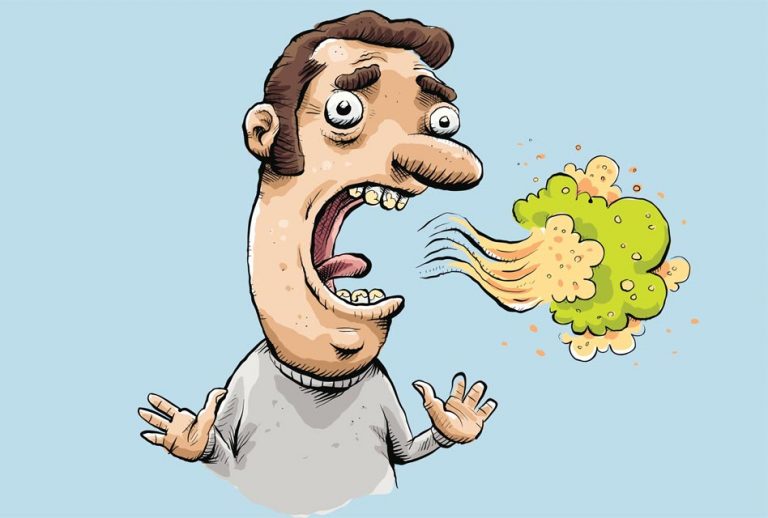
How long will you be numb after a dental procedure?
Your tongue will usually feel numb after a dental procedure while the anaesthetic wears off. The typical unaesthetic causes numbness around the mouth for approximately four hours. The effects of strong unaesthetic used for more invasive procedures, including wisdom teeth extraction, last between eight and nine hours.
How long does numbness last After Dentist?
This numb sensation might tend to last at a minimum of two hours to up to five hours. However, if the dentist gives you a very high dose of painkillers during the wisdom tooth extraction procedure, it might take even longer than five hours.
How to get rid of numbness after dentist?
What can you do for a numb mouth from the dentist?
- Sleep it off. If you have the time to do so, a quick nap could be all it takes to help you reverse the numbness.
- Exercise. Engaging in light physical activity after a dental procedure can help stimulate blood flow which can help the anesthesia wear off.
- Swish salt water.
- Massage gently.
How long does numbing last after filling?
In most cases, the anesthesia used will numb the tooth for 1 to 2 hours, however your lips, face and tongue may remain numb for up to 3 to 5 hours after the injection. A numb mouth can be frustrating if you start to get hungry or try to carry on a conversation before complete feeling returns to your mouth and face.

How can I make the numbness in my mouth go away faster after the dentist?
Tricks To Make Novocaine Wear Off Faster. In most situations, the anesthesia your dentist uses will numb the tooth for 1 to 2 hours. ... Massage Your Skin. If no swelling is present, apply a warm compress to help increase blood flow to the affected area. ... Get Active. ... Take a Nap. ... Ask For Another Injection.
How long will my mouth be numb after visiting the dentist?
Generally speaking, your mouth, tongue, cheeks, and lips can remain numb anywhere between two and five hours. Be mindful of the fact that you'll likely drool and slur your speech.
How long after a filling can I eat?
A composite filling hardens immediately once a dentist puts a blue UV light on your tooth. You can usually eat as soon as you leave your dentist's office. However, your dentist may recommend waiting for at least 2 hours before chewing on the filling if you're still numb.
Why is my mouth still numb 24 hours after dental work?
The back teeth in your lower jaw are close to major nerves. A root canal performed in this area can cause a numb sensation for a longer period. Actual nerve damage is not common but if the problem persists, schedule an appointment with us. Follow all of the aftercare instructions provided.
How long does it take for numbness to go away after a dental filling?
For something like a cavity filling, your local anesthesia should wear off within 1 to 3 hours. While the numbness dissipates, you may experience some difficulty chewing, speaking, or even smiling within that window.
Why is it important to monitor children after anesthesia?
It’s especially important to monitor children after a procedure involving anesthesia to make sure they aren’t prodding the injection site, which may be irritated or sore for a few days. While numb, they may also accidentally bite their tongues or cheeks, which can be painful when sensation returns.
What is anesthesia used for?
Anesthesia is commonly used by dentists for procedures that would otherwise be too painful for patients to undergo, including root canals, tooth extractions, and dental implants. It can even be useful for some routine treatments, like cavity fillings.
What is the treatment for gum infection?
It’s usually rubbed on the gums at and around the treatment site. This is administered as either a block injection, or an infiltration injection.
Do you have to tell your dentist about your allergies?
Before your treatment, make sure to tell your dentist about any medications you take (including supplements), so they can account for possible reactions. It’s also important to give notice of any allergies you have and to look out for any sign of allergic reaction if you’ve never been anesthetized before.
Can anesthesia be used safely?
For the vast majority of people, anesthesia can be used safely and effectively with no problem.
How long does it take for a tooth to go numb?
When you take local anesthesia, its numbing effect on the tooth can last from one to two hours, and your lips and tongue can be affected for three to five hours.
How long does numbing last?
For instance, Novocaine’s (a popular local anesthetic drug) numbing effects usually wear off after thirty to sixty minutes. However, many other factors influence how long the effects last.
What type of anesthesia is used for fillings?
For example, a dental filling is a minor procedure requiring the use of local anesthesia only to a small area.
What is numbing gel?
Numbing gel: A numbing gel is an ointment that is used for a temporary numbing of an area. Although this numbing agent is not very strong and does not guarantee a painless procedure, what it can do is allow more powerful injections to be used without any pain or discomfort.
How long does it take for anesthesia to wear off?
On average, local anesthesia can last anywhere from 1 to 4 hours. If you begin to feel discomfort in the middle of treatment, notify your dentist immediately.
What is local anesthesia?
Local anesthesia: Almost all restorative dentistry procedures, such as dental bonding or dentures, use local anesthesia. The two types include infiltration injection and block injection. An infiltration injection can immobilize some specific regions of the mouth.
How to contact Dynamic Dental Solutions?
Contact Dynamic Dental Solutions at (281) 837-9090 to schedule an appointment.
How long does numbing last in anesthesia?
Anesthesia that contains epinephrine is commonly used, and the numbing effect lasts from 2 to 4 hours. Rarely does it last more than that, although there have been cases where the numbing effect lasted for days. Anesthesia that doesn’t contain epinephrine is used for patients who have heart disease, high blood pressure, ...
What is local anesthesia?
Local anesthesia is the injection of a solution that numbs the area where a dentist has to work on ( tooth, gums, etc.) That solution can either contain epinephrine (adrenaline) or not. Epinephrine is added to the anesthesia solution to increase the numbing effect. Anesthesia that contains epinephrine is commonly used, ...
How long does it take to go numb after anesthesia?
You could be numb for as little as an hour or two, all the way to around five hours. The range will depend on how much anesthesia was administered, and where it was administered.
Why does my mouth go numb after a shot?
The numbness comes from local anesthesia. Depending on where you receive your shot, you may end up feeling it all over your mouth, including lips, and the skin on your chin.
How to stop bleeding gums from brushing?
A brief list of some of the most effective ways to stop your gums from bleeding would include: Brush Your Gums with Listerine Brush all of the gums, inside and out, with any flavor Listerine until all of the sticky stuff is gone. The surface of your teeth should ALL feel smooth to your tongue. Then, floss and brush your teeth with toothpaste. Rinsing Your Mouth with Salt Water Bleeding gums are generally caused by bad bacteria in the mouth. You can effectively decrease the number of bacteria in your mouth by swirling warm salt water, hydrogen peroxide or Listerine around your mouth a few times a day. You should notice a reduction in gum bleeds in less than a week if you're "brushing" the gums with Listerine. Improving Your Oral Hygiene Inflamed and bleeding gums are aggravated by a buildup of plaque along the gum line. If plaque is contributing to your oral problems, improving your daily hygiene habits by brushing with Listerine should improve matters in no time. For best results, you should brush twice a day and floss once a day. Giving Up Smoking Smoking can weaken your immune system and reduce your body's ability to fight off plaque bacteria. Smoking also makes your mouth dryer and more acidic...bacteria thrive there. As a result, you are likely to find yourself dealing with bleeding gums. Fortunately, if you can manage to quit smoking, your gums will begin to recover fairly quickly. For more information on how to quit, you should consult with your physician. Increasing Your Intake of Vitamin C and B Vitamin C can help boost your immune system, making it easier for your body to deal with gum disease. As such, if you increase your daily intake of this vital nutrient, you are likely to see your bleeding stop before too long. Some of the best foods to eat to boost your vitamin C levels include oranges, carrots and sweet potatoes. Visiting Your Dentist If none of your home remedies are effectively reducing or eliminating your gum issues, you should make an appointment with your dentist in Lutz, FL . They will be able to take a more in-depth look at your oral health and help you figure out what might be causing your problem. They will then let you know exactly what you can do to fix the issue. In Closing Spotting blood coming from your gums can be frightening at first. However, as long as you take steps to deal with the problem, you should be able to nip it in the bud before it becomes too serious. Often, people think they inherited bleeding gums, but what they really inherited was "habits." Tweaking your home care habits can vastly improve your oral care and save you thousands of dollars in avoidable dental care.
Dental Numbing
The anesthesia your dentist uses to anesthetize the tooth lasts generally for 1 to 2 hours. Furthermore, the following 3 to 5 hours may leave your lips, face, and tongue insensitive. can be frustrating if you’re trying to return to normal activities instantly following your appointment.
How Long Does the Numbing Last?
Different anesthetics, to put in simple words have different levels of power. The dentist will settle on the type of anesthetic that a patient needs. Well, patients can also be given an option.
Glendale Dental Numbing
Here at Smile Makeover of LA, we can guarantee that painless procedures are possible and are highly recommended by no other than the expert Dr. Sahakyan your most reliable Dentist in Glendale. With our highly trained and friendly team waiting to support you, you can rest assured that every dental visit will be a breeze.
How long does it take for your mouth to go numb after a dental procedure?
Since different types of dental procedures require different amounts of anesthesia, there is no one-size-fits-all answer for how long your mouth will stay numb after a procedure. Additionally, other factors come into play as to how long the numbing sensation will last, such as your height, weight, and how fast your body is able to metabolize the anesthesia. Where in your mouth you needed work done also comes into play as the bottom jaw is a large nerve block that controls sensations to more areas of your face.
How long does it take for a tooth to go numb?
In most situations, the anesthesia your dentist uses will numb the tooth for 1 to 2 hours. Additionally, the following 3 to 5 hours may leave your lips, face, and tongue numb, which can be frustrating if you’re attempting to return to normal activities immediately following your appointment.
How to get rid of numbness after dental procedure?
Ask your dentist if it’s safe to participate in physical activity following your dental procedure. Taking a brisk walk, going for a bike ride, or even tacking a few chores around the house will help to reduce numbness in a natural way. Being active stimulates blood flow in the body, which helps to carry the anesthesia away from the injection site.
How to get your mind off of numbness?
Take a Nap. While taking a nap is the opposite of being active, falling asleep can help to get your mind off of the fact that certain areas of your mouth and face are numb. Sit back, relax, and allow the numbing sensation to pass until the sensation wears off peacefully.
Where in your mouth do you need work done?
Where in your mouth you needed work done also comes into play as the bottom jaw is a large nerve block that controls sensations to more areas of your face. Have patience in allowing the anesthesia to wear off before making a big presentation at work, having a date with a romantic interest, or eating a big meal.
Can you reverse anesthesia?
Ask For Another Injection. Some dental practices use medicine that can reverse the effects of general anesthesia. While this will mean another injection, a second reversal injection can also help to make the numbness dissipate twice as fast as just waiting it out.
How long does it take for a tooth to go numb after a tooth extraction?
In most cases, the anesthesia used will numb the tooth for 1 to 2 hours, however your lips, face and tongue may remain numb for up to 3 to 5 hours after the injection.
How to get rid of numb mouth after a root canal?
How to Get Rid of Numb Mouth After a Dentist. If a trip to the dentist includes a filling, root canal or other procedure, you may receive a local anesthetic to numb the area and prevent pain. In most cases, the anesthesia used will numb the tooth for 1 to 2 hours, however your lips, face and tongue may remain numb for up to 3 to 5 hours after ...
How to get rid of numb mouth?
However, you can also try these home remedies to deal with a numb mouth. Massage the skin around your mouth, rubbing your fingers in small circles around your gums and jaw. Get active. Ask your dentist if it's safe to participate in physical activity,and if so, take a brisk walk, go for a bike ride or even do some household chores.
How to get anesthesia out of your body?
Being active stimulates blood flow in the body which helps to carry the anesthesia away from the injection site for your body to break it down and metabolize. Take a nap.
When to schedule a dentist appointment?
Schedule dentist appointments on days when you know you don't have a big presentation at school or work, or will be attending a special engagement. Schedule dentist appointments on days when you know you don't have a big presentation at school or work, or will be attending a special engagement.
How to get rid of mouth ache?
Take a nap. Falling asleep will help get your mind off the feeling, or lack thereof, in your mouth and will help peacefully pass the time as the sensation wears off.
